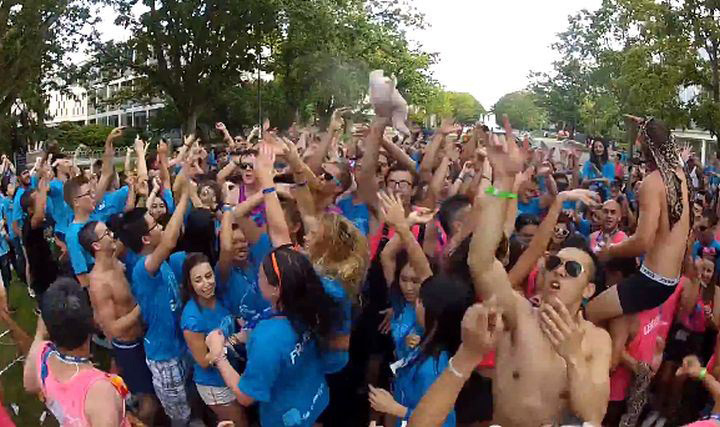
Respect for humanity > buzzwords
By Joel MacKenzie, Contributor
News headlines all too often call people who have committed crimes like murder or abuse something inhumane. For instance, on April 26 the Province declared Adam Braidwood, the former CFL Edmonton Eskimos player recently sentenced to over four years in prison, a “hero” turned “monster.”
It’s sad that a writer has to resort to dehumanization to create a snappy headline. Name-calling such as this should never be tolerated. Yes, this man has allegedly done some terrible things: he was sentenced to this prison term for sexual assault against his former girlfriend, and he’s also been charged with aggravated assault and kidnapping. But these charges do not make him any less of a person.
Am I overreacting to the harmless name-calling of someone who deserves to be publicly shamed? We can’t write off this name-calling as harmless, whether it appears on the front page of an immensely popular British Columbian newspaper or in casual conversation. There’s no difference between this and the bullying that too often sends high school kids into depression, and has caused too many to commit suicide. While it’s perhaps less acknowledged in the adult world, there’s no reason it would be any less hurtful, or that it would cause someone to feel any less alienated from society.
This alienation, in fact, encourages that same negative behaviour that the person is being punished for. When people who have been violent in the past, for instance, are made to feel unequal to others, what motivation do they have to change? What would make them feel they could come back into the society that’s pushed them so far away?
The lowly bullying of name-calling is what adults should be mature and compassionate enough to put behind them. People like Braidwood deserve to be put through the legal system, not mocked.
Labeling is undoubtedly tempting. When people are different, it’s easier to hurt them: when enemy soldiers are made into monsters, it’s easier to kill them; when an abrasive co-worker is a bitch, it’s easier to hate her. And then the nature of the “other” is easier to make sense of. The fact that they were raised in this society and turned out this way is due to the fact that they aren’t people, not like you and I.
It’s harder to accept the truth that they are people. They aren’t going to be easy to understand and they aren’t going to be easy to deal with, but they also aren’t going to stop being people.

